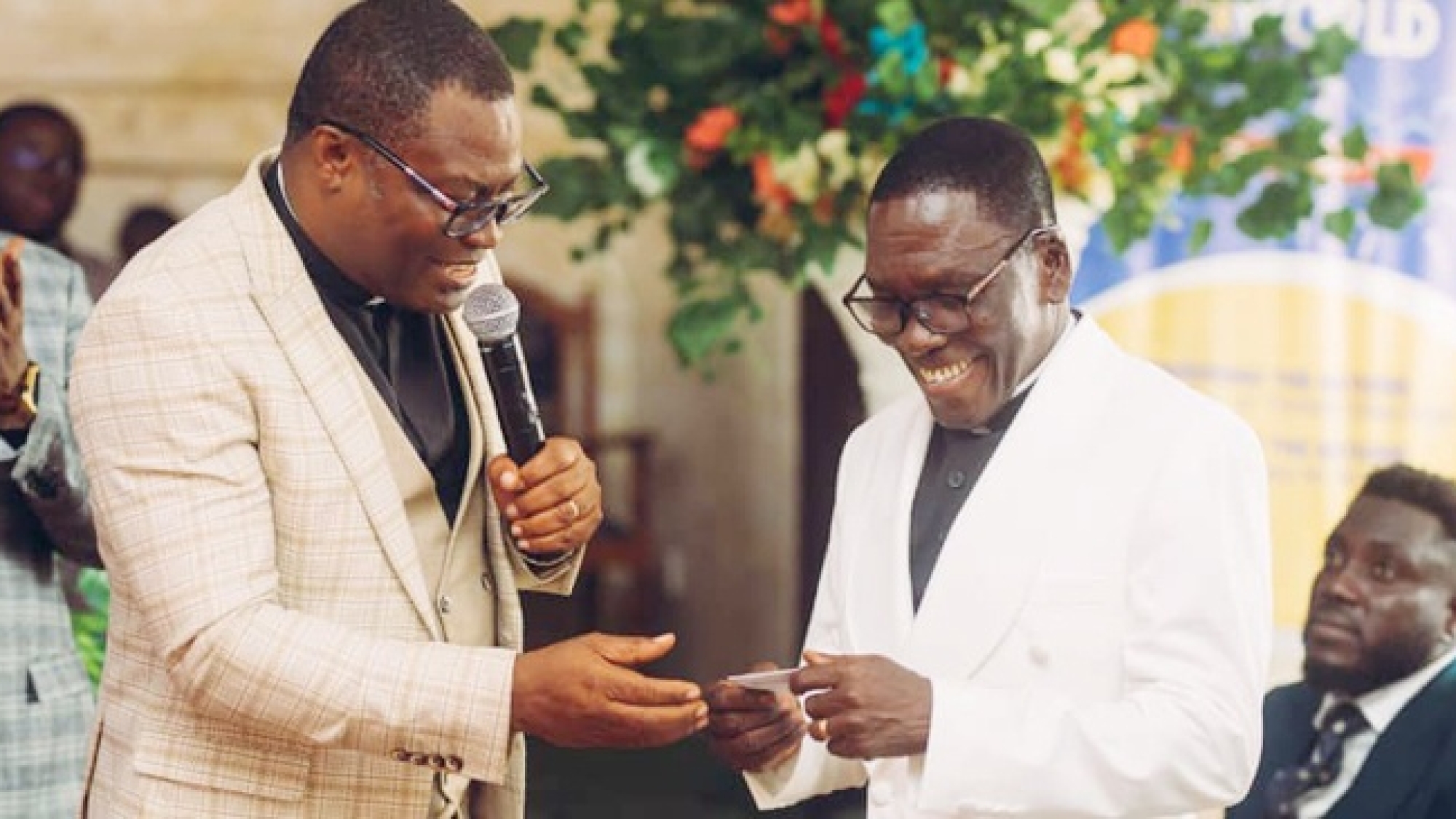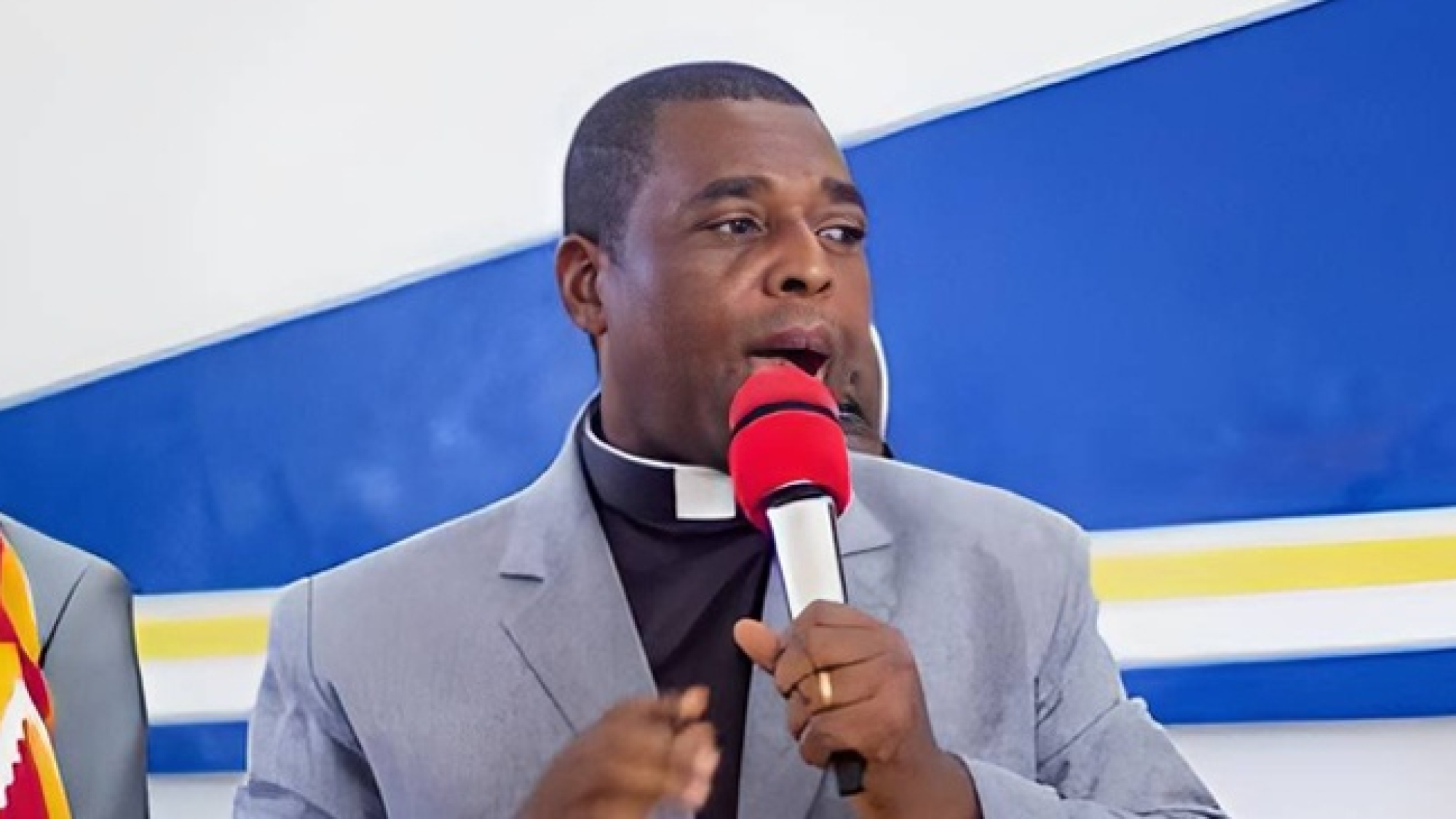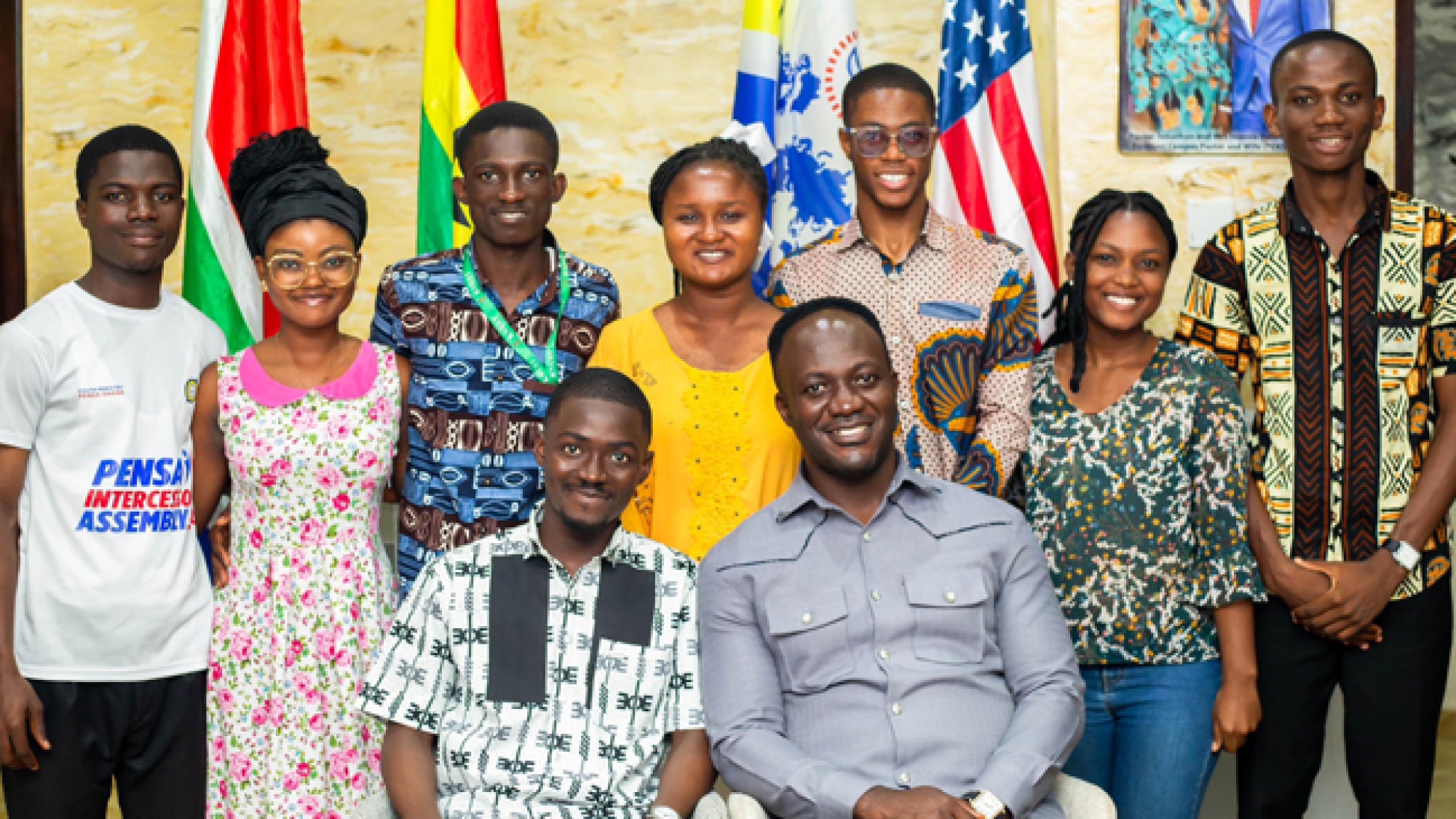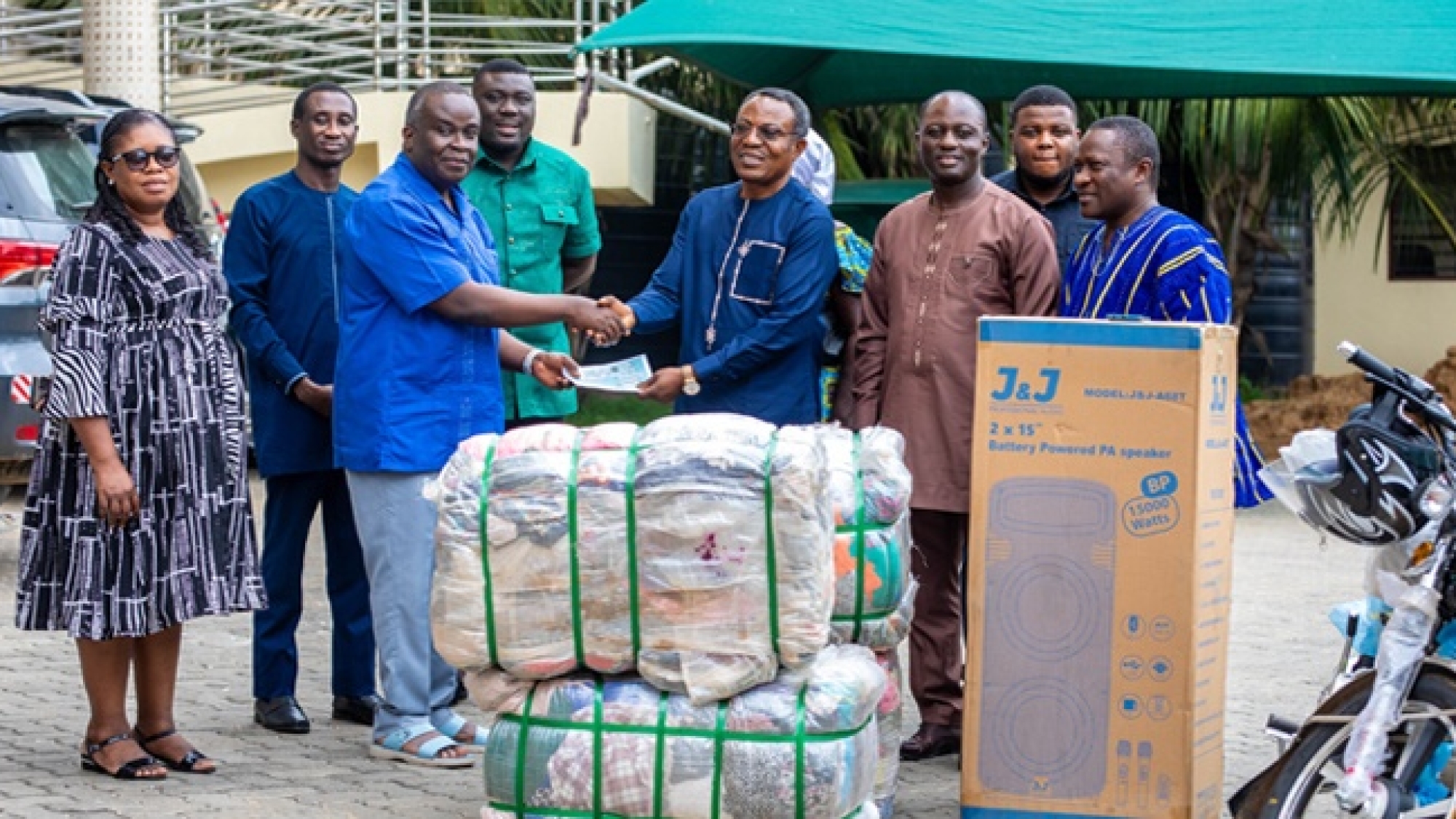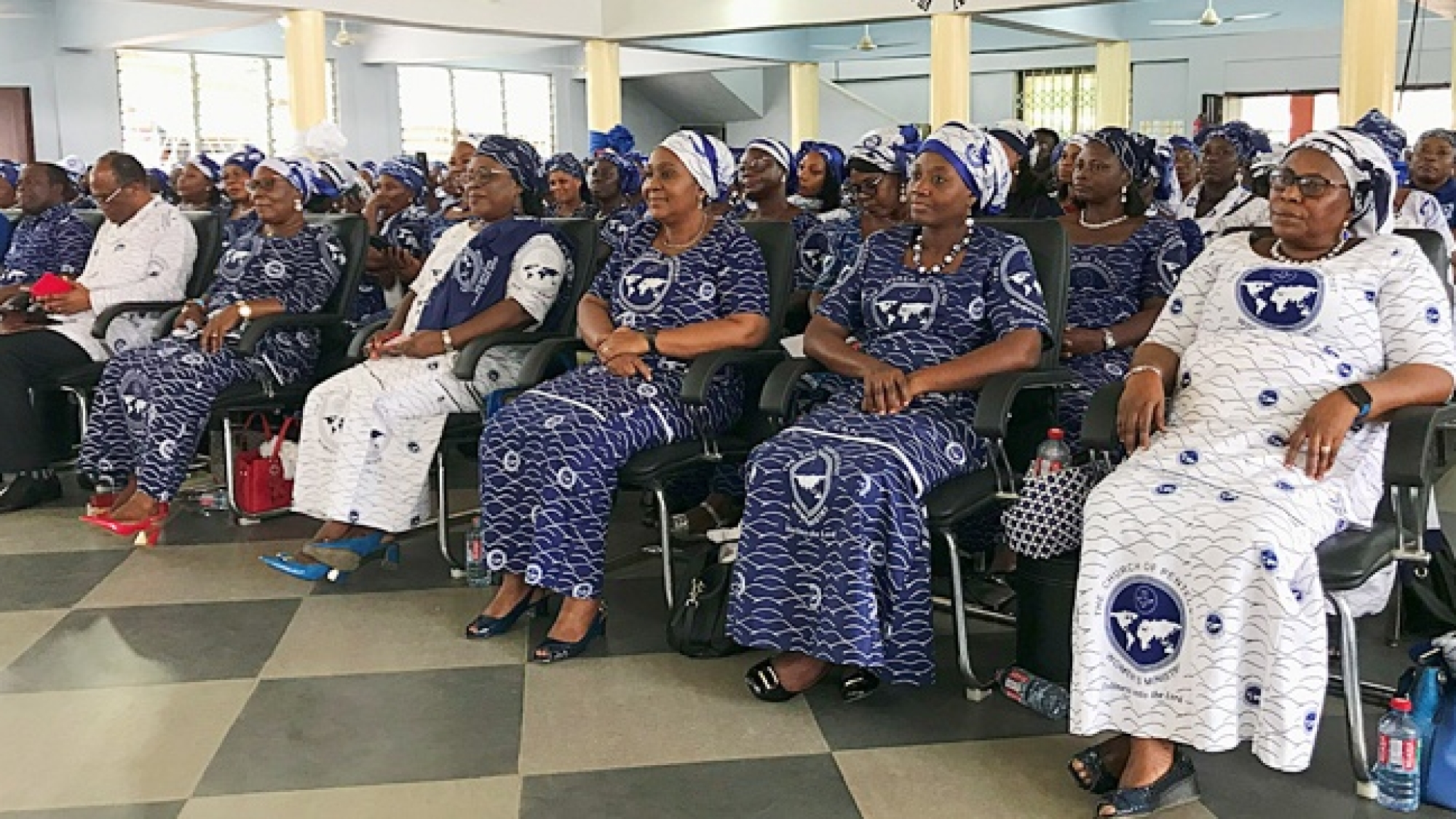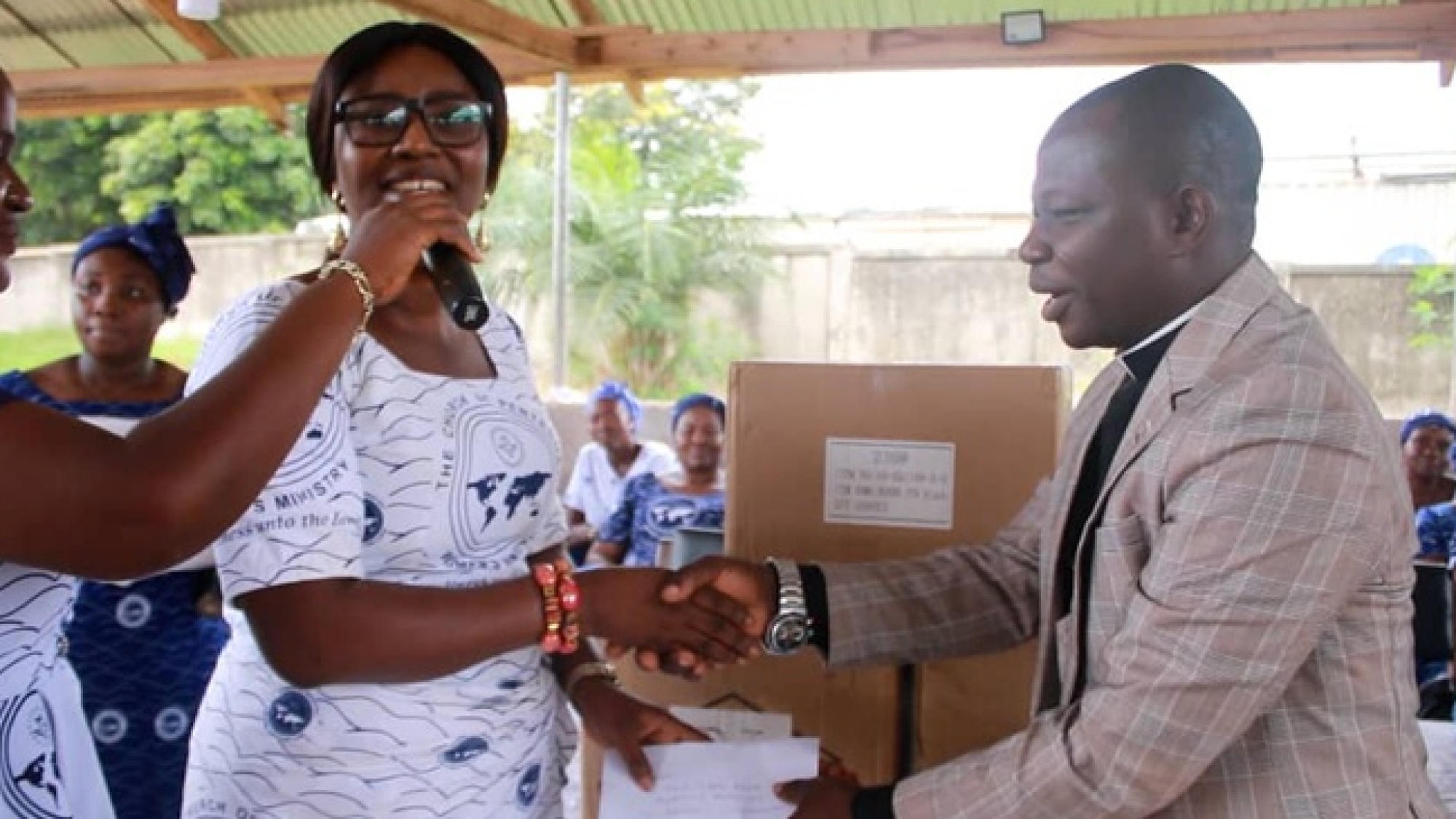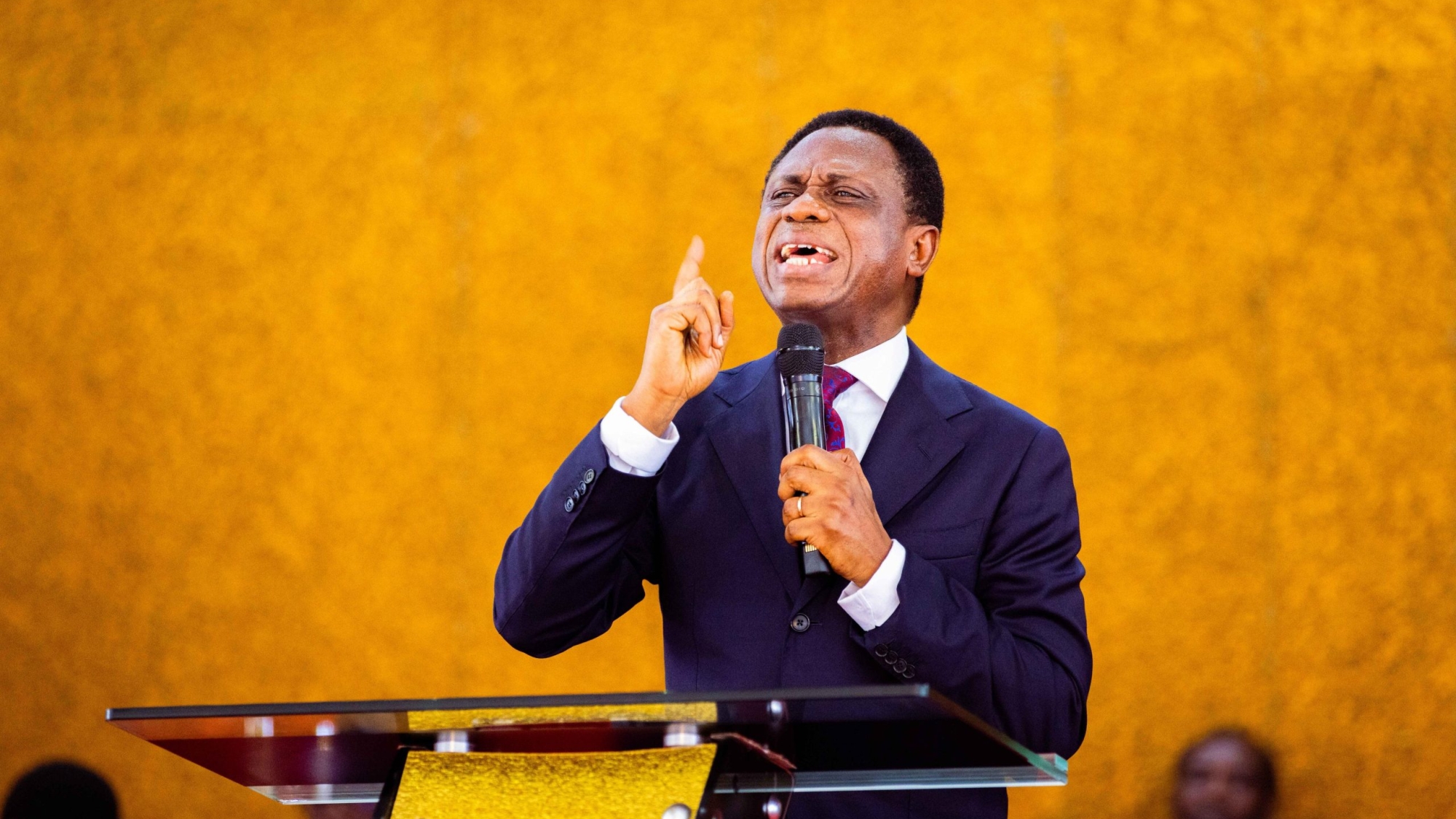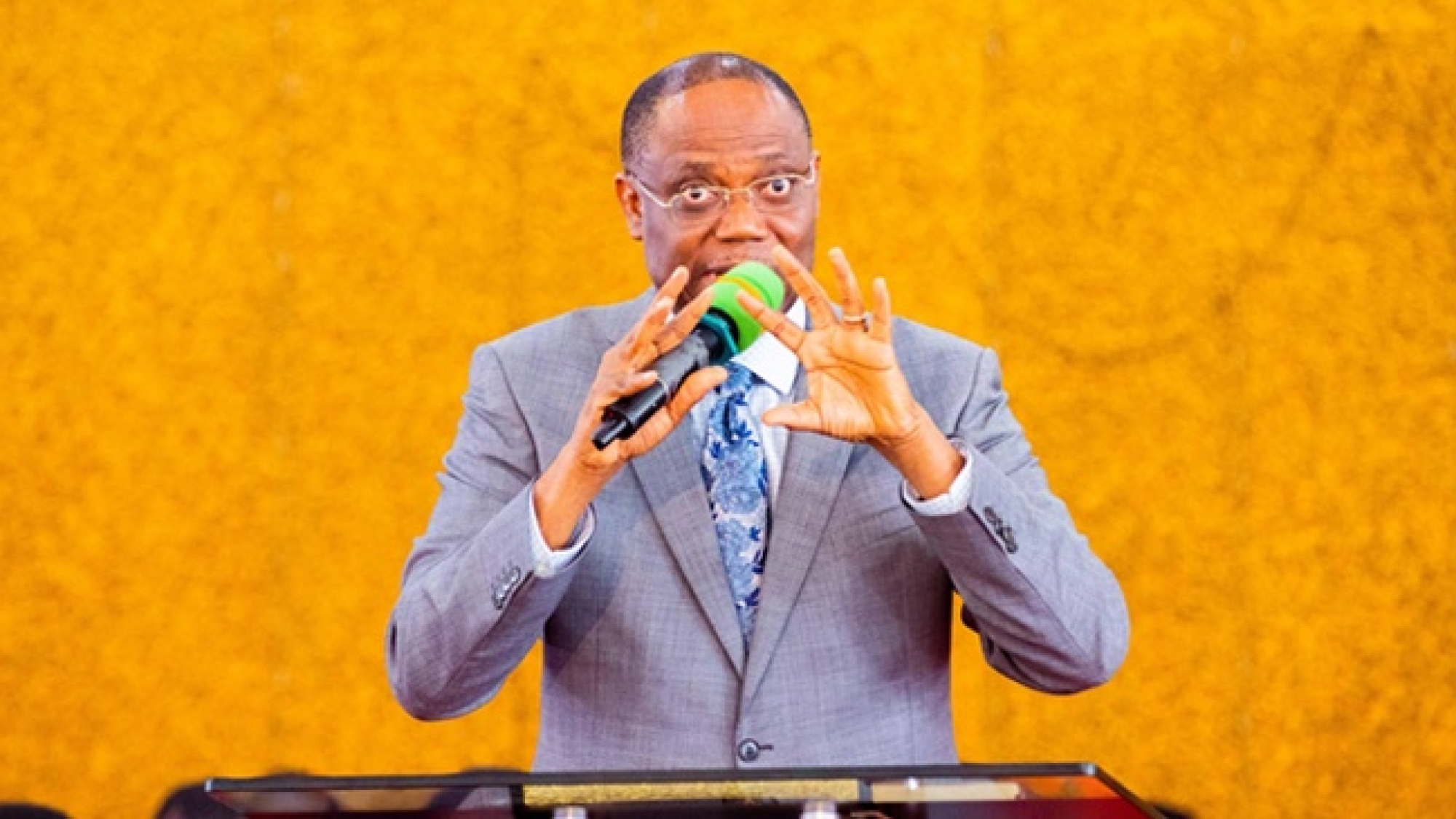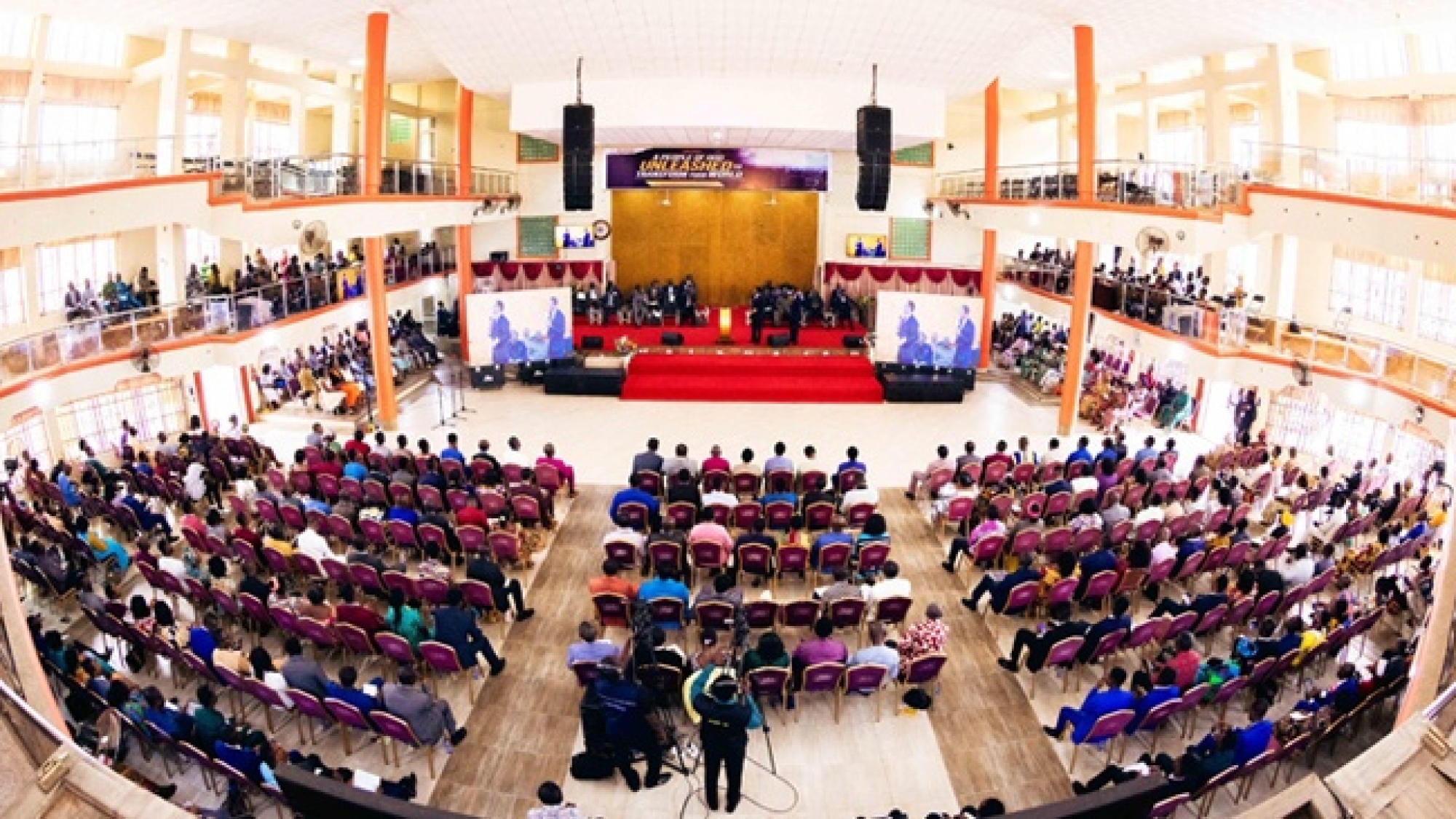After serving God and The Church of Pentecost for 29 years, from 1995 to 2024, Pastor Joseph Anenyah Ntoso and his wife, Mrs. Epiphany Ntoso, successfully retired from active ministry on Sunday, July 28, 2024.
The service, held at the Central Assembly of the Juapong District in the Agormanya Area, was organised to honour the minister, whose ministerial journey took him to Ajakaa-Manso, Adansi-Asokwa, Tema-West, Sakumono, Atonsu Bokoro, Worawora, and finally Juapong.

Speaking at the event on the theme “Complete Your Mission,” Apostle Francis Yaw Adu, the Nsawam Area Head, encouraged the congregation to fulfill their mission.
Reading from Luke 13:20-32, Apostle Yaw Adu defined a mission as the specific objective or aim one seeks to attain.
He emphasised that every individual is created with a unique mission and that The Church of Pentecost exists to guide and assist each believer in their endeavor to fulfill that mission.
The Nsawam Area Head observed that the believer’s mission is holistic in nature and calls for the engagement of the whole person for a holistic witness of the living Christ.
He stressed that the call to holistic witness must be reflected in the workplace, modeled in the home, and evident in every sphere of life.

Apostle Adu noted that completing a divine mission comes with challenges, personified in the passage as “Herod, the King.” Among such challenges that hinder the fulfillment of a divine mission are hardship (2 Corinthians 11:28), dangers (2 Corinthians 11:24, 27), persecution, and spiritual warfare.
In concluding his message, he urged the congregation to “stay focused and stay on the mission (Proverbs 3:5-6), use God’s resources or warfare tools such as the Word of God and the Holy Spirit as a comforter, keep moving and trusting in God’s timing and power (Zechariah 4:6), be strategic in your mission, plan your mission, and consider mission a joyful enterprise.”
Reflecting on the ministry of Pastor Joseph Ntoso, the Agormanya Area Head, Apostle Dr. Samuel Gakpetor, encouraged the congregants to genuinely serve the Lord in every space or opportunity given and not to trivialize any opportunity.
Also in attendance were Apostle Patrick Aseyero (Suhum Area Head), Apostle Emmanuel Kojo Aidoo (Asamankese Area Head), and over 900 congregants, including ministers and their wives.
Report by Area Media Team





